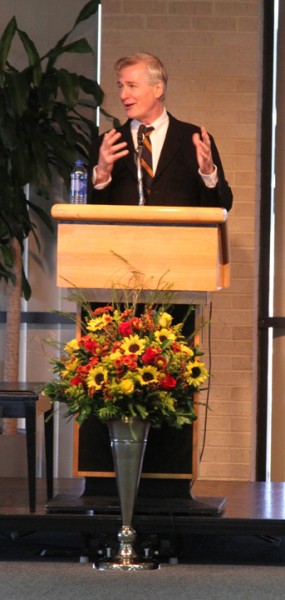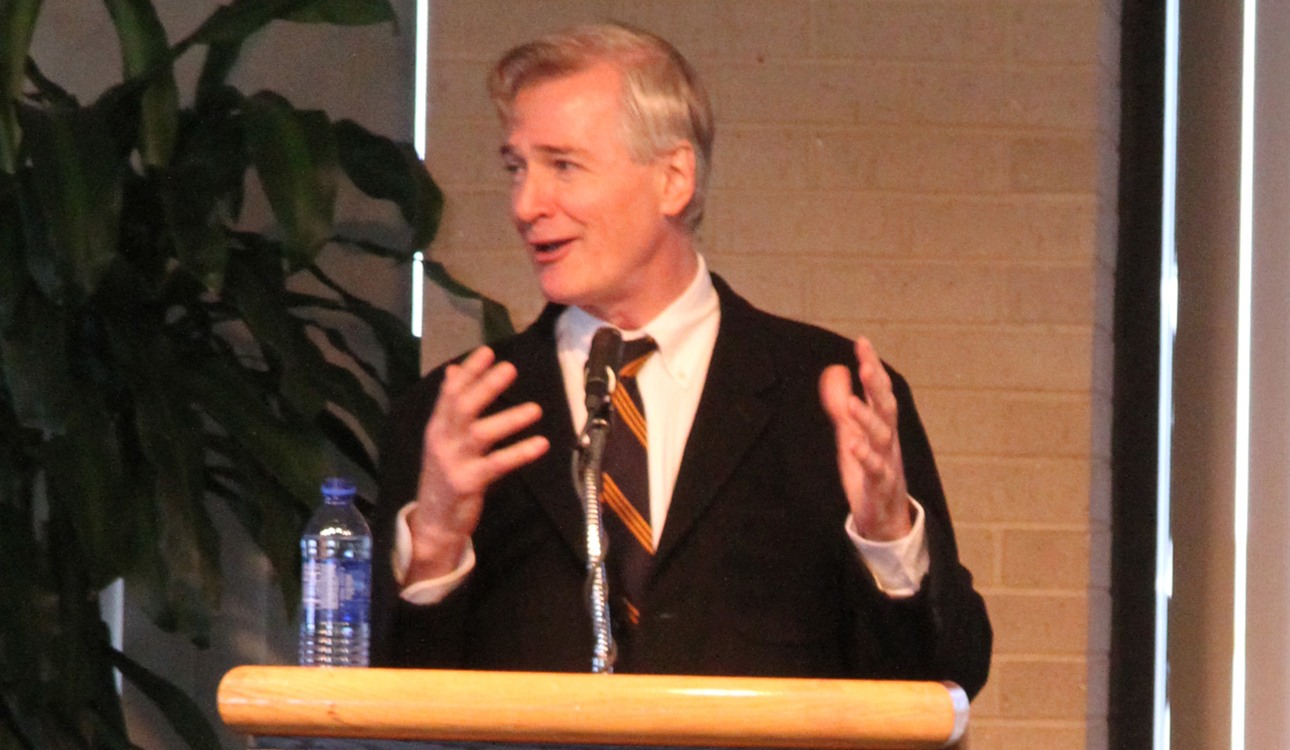
Matthew McCarroll | Lariat Photographer
By Rachel Ambelang
Contributor
John Patrick Shanley, an Oscar-winning screenwriter, director and Tony-awarded playwright, talked about his childhood, struggles and successes at 3:30 p.m. Monday in Cashion Academic Center as a part of the Beall-Russell Lectures in the Humanities.
In a genuine New York accent, Shanley discussed his upbringing in the Bronx of New York by the rough streets and the strict Irish backhand of his mother.
He admitted to being a trouble-maker that often disappointed his parents and said “failure is a word parents invented to describe their children.”
Shanley reminisced on the days when he would pray to the moon as if it were his mother and said he was in a constant state of inspiration and truly felt loved by staring up at its beauty.
At the age of 12, the nuns at Shanley’s school put him into a statewide writing competition. The topic was “How can Catholic teens free the world?” Raised as a Roman Catholic, Shanley said he “went to town” on the essay. He won the contest.
After that, he began to take writing a little more seriously. At the age of 22, he wrote his first play.
After finishing it, he knew what he had to do for the rest of his life, Shanley said.
Shanley was a poor bartender for 10 years before he had his first success in Hollywood writing the screenplay for the film “Five Corners,” starring a young Jodie Foster and Tim Robbins.
His next screenplay, “Moonstruck,” won him an Oscar for Best Original Screenplay.
In 2004, he wrote the play “Doubt,” which won a Tony Award for Best Drama and was so successful that Shanley went on to adapt the play for a film and to direct the film himself in 2008.
“Doubt” was Shanley’s first return to the role of director since 1990 when he wrote and directed the film “Joe Versus the Volcano.”
Adapting the play was a challenge for Shanley, but he said he is constantly pushing himself to do things that he knows are outside of his capabilities.
Shanley defined greatness not as a state, but a moment you can reside in when you know you have reached beyond your limits.
After Shanley put his speech aside, he answered questions, and many were about his writing. When asked whether or not he enjoys writing, he said, “Writing is a symptom.”
Shanley described writing as merely the tool he uses to honestly portray, grapple with and take part in what he truly enjoys — life.
“Writing is not what matters,” Shanley said, “but the experience you are trying to portray.”
Shanley gave advice ranging from beating writer’s block to finding wisdom in doubt. Afterwards he held a book signing.
“I’m just so impressed with his wide range of talents,” said Dr. Jim Kendrick, associate professor of film and digital media. “I mean the same guy wrote and directed ‘Doubt’ and ‘Joe Versus the Volcano.’”
One inspired student in the audience summed up his impression of Shanley.
“It is so refreshing to hear an artist who is as educated and intellectually developed as he is talented and personal,” junior Jake Abell said.
The annual Beall-Russell Lectures in the Humanities series was established in 1982 with a donation from Virginia B. Ball.
Previous lecturers include poet Dana Gioia and distinguished historian Dr. Anthony Grafton.






